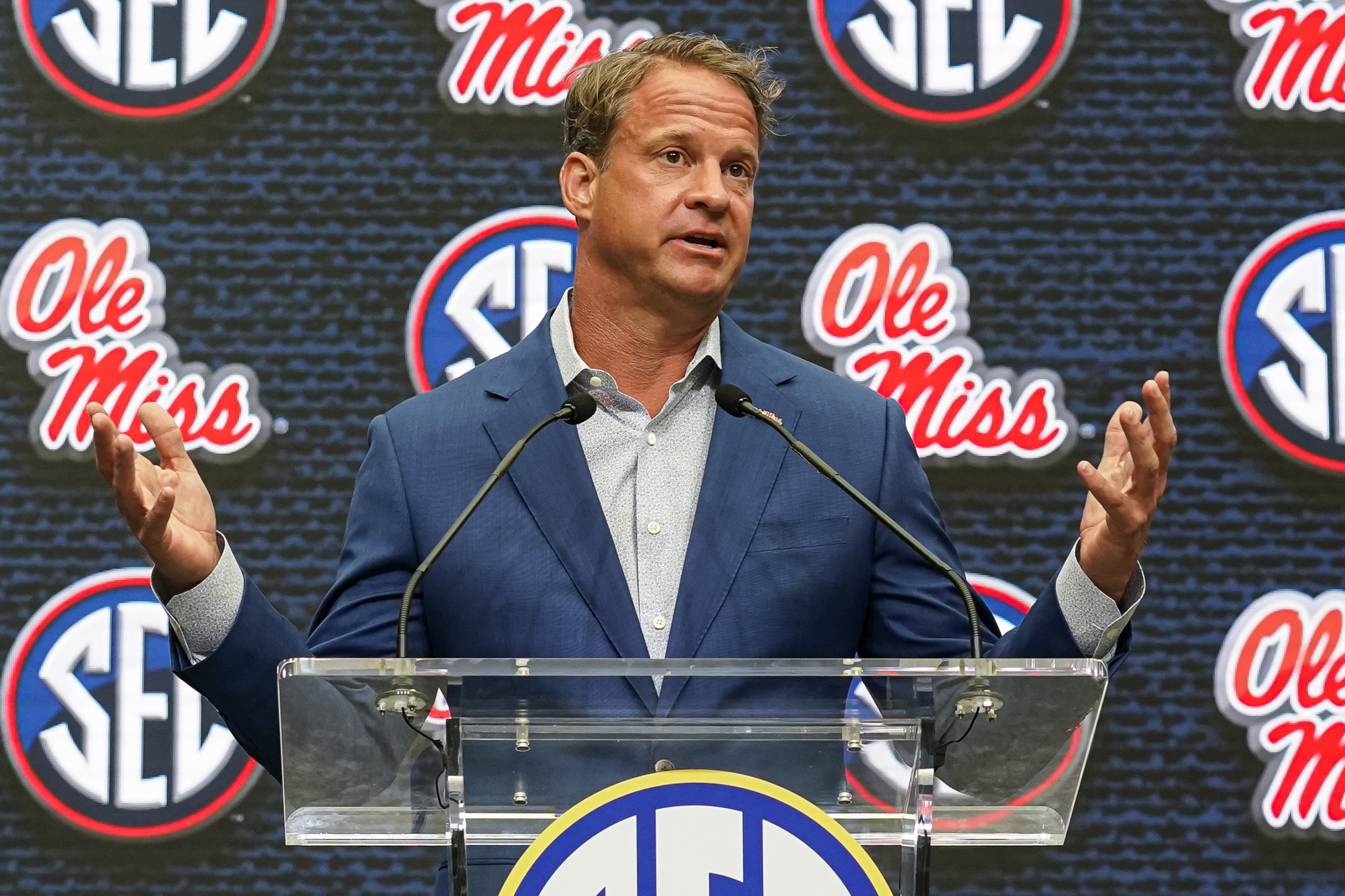At SEC Media Days, Ole Miss coach Lane Kiffin suggested a potential solution to the complaint that NIL has created an unfair advantage for schools in football recruiting: a team-wide “salary cap” on NIL funds managed by the coach — à la professional sports leagues.
In his defense, Kiffin admitted he didn’t have a fleshed-out plan, but there are serious issues with his suggestion — even beyond the fact that it’s based on a problem that NIL didn’t create (the disparity in college football resources existed before NIL).
The idea itself suggests using NIL as an athlete’s salary — the No.1 thing the NCAA is trying to prevent.
What’s more, a salary cap in college sports, as it currently stands, might not even be legal.
Kiffin’s idea doesn’t actually represent how pro sports work, as attorney Darren Heitner pointed out on Twitter. The professional equivalent of NIL deals are pro athletes’ off-field endeavors, from businesses to endorsements — and there’s no limit to how much an athlete can make on those activities in any law or league rulebook.
The idea would also imply that NIL payments are salaries for playing on a particular team — which is completely antithetical to what the NCAA wanted them to be. Regardless of whether one is in favor of paying athletes salaries, NIL is supposed to be separate.
There could be major legal fallout if the NCAA — or any school or conference — tries to limit the amount of money an athlete can make through NIL.
The Alston decision, while not specifically dealing with NIL, suggested that the governing body has less power to set compensation limits than it previously thought. If it tries to set strict rules, it could be found in violation of antitrust law.
And as attorney Marc Edelman noted, salary caps are only legal in other sports because they have the agreement of a union. NCAA athletes currently don’t even have an official collective bargaining unit.
Ironically, a more helpful solution would be legalizing paying college athletes salaries and deeming them employees, as attorney Mit Winter suggested.
Athletes could form a union and collectively bargain, a governing body could set compensation limits for equity between teams, and NIL payments would no longer necessarily be a requisite for recruitment.





![[Subscription Customers Only] Jul 13, 2025; East Rutherford, New Jersey, USA; Chelsea FC midfielder Cole Palmer (10) celebrates winning the final of the 2025 FIFA Club World Cup at MetLife Stadium](https://frontofficesports.com/wp-content/uploads/2026/02/USATSI_26636703-scaled-e1770932227605.jpg?quality=100&w=1024)











